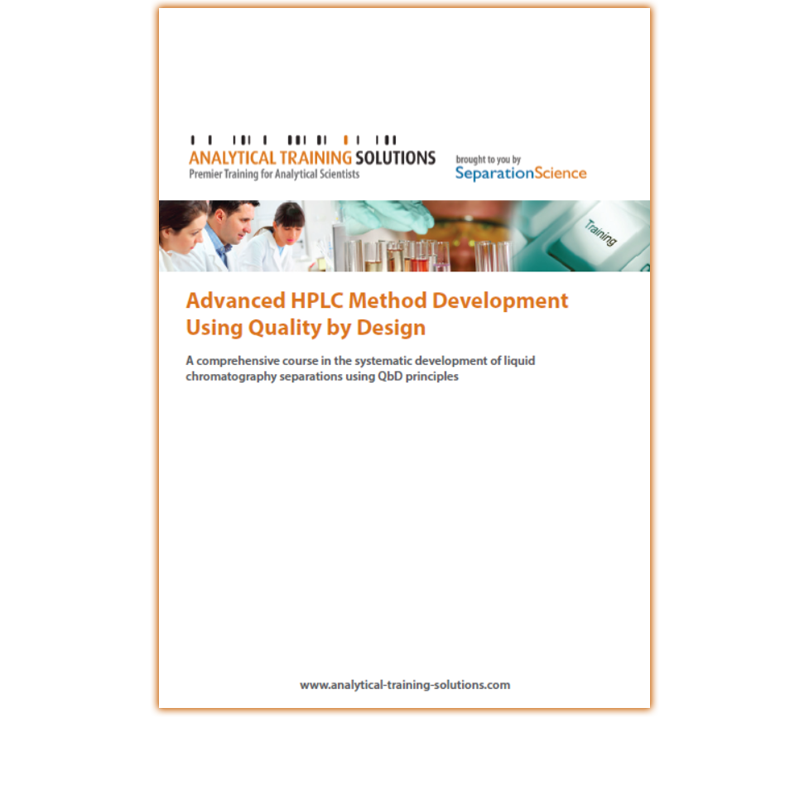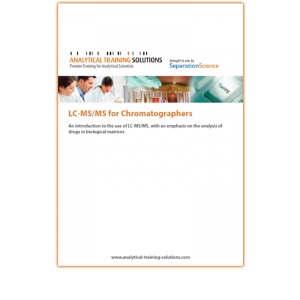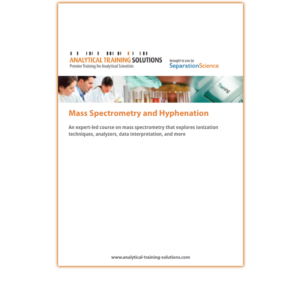Site Licence – Advanced HPLC Method Development Using Quality by Design
$975.00
Site Licence
- Multi-User Access
- 1 Geographic Site (All users must be based at the same geographic site)
- Unlimited course access for a 12-month (365-day) period
- 38 Modules
- 12.5 Hours of Self-paced Validated Learning
Click to try the first training module for free. This will give you a good indication of how the training works.
All courses are broken down into manageable modules and presented in a logical manner for effective learning. We would recommend that users run through each course in the module order provided for the best learning experience.
You will be able to download a ‘Certificate of Completion’ from the ‘My Account’ section once all modules of a course have been completed and all quiz questions answered correctly. (Don’t worry, you can attempt the questions as many times as you like.)
Multi-User Course Access
Your Site Licence includes the following course:
- Advanced HPLC Method Development using QbD – Learn a time-proven technique that walks you through the method development process using sound chromatographic principles.
The central tenant of Quality by Design is that quality cannot be tested into a product – instead, it must be designed into the product. When the product is an HPLC method, QbD strategies can guide the development process to result in a standardized method development procedure, more easily validated methods, and methods that are easier to use and adjust in routine applications.
“Advanced HPLC Method Development Using Quality by Design” is an intensive online class that teaches you strategy and technique to develop high-quality HPLC and UHPLC methods quickly and with confidence. You will learn a time-proven technique that walks you through the method development process a step at a time using sound chromatographic principles to help make the process more efficient. The techniques can be used as a stand-alone strategy or added to existing development procedures to help streamline the process. Because the same principles apply to HPLC and UHPLC, you can apply the same information to the development of UHPLC methods.
Here’s what the course covers:
- What Quality by Design (QbD) is and how it applies to HPLC methods
- A review of basic HPLC theory as it applies to method development
- The makeup of HPLC columns including the support material and the bonded phase
- The role of solvents in the separation
- How the column plate number, selectivity, and retention can be used in a logical way to solve even the toughest separation problems
- How to use mobile phase solvents, pH, temperature, chemistry, and other variables to pull apart difficult-to-separate peak pairs
- How gradient elution works and how to remove the mystery of optimizing gradients
- How a scouting gradient can be used to speed the development of both isocratic and gradient methods
- How to use a simple spreadsheet calculator to move from the scouting run to the next step in method development
- How computer-assisted method development tools can leverage a small amount of data into a large amount of information about a separation
- How to take advantage of a publicly available internet database to identify equivalent and orthogonal columns
- When standard reversed-phase techniques don’t work, how to choose mixed-mode, ion-pairing, normal phase, HILIC, chiral, or other chromatographic modes
- What’s the same and different when comparing HPLC and UHPLC
- What to look for when validating a method
Course Presenter
 John Dolan has written more than 300 user-oriented articles on HPLC troubleshooting and more than 100 peer-reviewed technical articles on HPLC and related techniques. His three books (co-authored with Lloyd Snyder), Troubleshooting HPLC Systems, Introduction to Modern Liquid Chromatography (3rd edn), and High-Performance Gradient Elution, are standard references on thousands of desks around the world.
John Dolan has written more than 300 user-oriented articles on HPLC troubleshooting and more than 100 peer-reviewed technical articles on HPLC and related techniques. His three books (co-authored with Lloyd Snyder), Troubleshooting HPLC Systems, Introduction to Modern Liquid Chromatography (3rd edn), and High-Performance Gradient Elution, are standard references on thousands of desks around the world.
FAQ
Do check out our full FAQ to answer commonly asked questions and always feel free to contact us.
What are the course payment options?
Online payment for the course(s) is via our shop using a credit card (Stripe). Alternatively, if you would like to be billed directly, please contact us.
How and when do I get the usernames and passwords to access the courses?
Once you purchase the Site Licence you will be contacted to help you set up access for your users.
Is there an option to purchase multi-user access to more than one geographic site?
Yes, ATS offers the option to add to your core site licence one or more geographic site locations, thereby ensuring that all your scientists across your organisation are getting course access.



